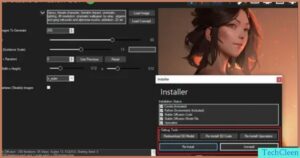English is important for Korean students. It helps them get into good schools and jobs. Many Korean companies want workers who speak English.
English is also the language of the internet. This makes it easier to learn and connect with people around the world.
Recent studies show that over 90% of Korean universities require English proficiency for graduation, while a staggering 78% of domestic companies consider English skills a key factor in hiring decisions.
But, learning English in Korea can be hard. Students often memorize words, but don’t know how to use them in real life.
Social media can help! It has lots of real English to learn from. People can talk and share on social media. It’s a fun way to practice English.
In this guide, we will show Korean students how to use social media to get better at English. We’ll look at Instagram, Twitter, and YouTube.
Students can have fun, make friends, and learn at the same time! Let’s dive into it..
Using Instagram
Instagram isn’t just a social network; it’s a language learning powerhouse. With over 1 billion active users, there’s no shortage of native English speakers and fellow learners to connect with.
Research shows that visual learning platforms like Instagram can boost vocabulary retention by up to 20%!
To get the most out of Instagram, follow a mix of native English speakers (influencers, educators, comedians), language learning accounts (for tips and vocabulary), and reputable news organizations (for current events and reading practice).
Go beyond simply liking posts. Use hashtags like #EnglishLearning, #StudyEnglish, #LearnEnglish to find relevant content and connect with other learners.
Practice your writing skills by leaving comments on posts, replying to Stories with voice messages or text, and participating in Q&As or polls.
Share your own experiences by posting photos with English captions and creating short videos using Reels.
Using Twitter
Twitter is a fast-paced world of ideas shared in short bursts. This makes it perfect for practicing concise writing and joining real-time conversations.
To learn English on Twitter, follow a mix of news outlets (like @nytimes, @BBCWorld), educational organizations (@TEDTalks, @Harvard), and interesting individuals.
Use hashtags like #EnglishLearning and #ESL to find fellow learners and resources.
Don’t be a passive observer – reply to tweets, retweet interesting content with your own thoughts, and even join live audio conversations in Twitter Spaces to practice listening and speaking.
Share your own daily updates, thoughts, and questions in English to actively participate in the community.
Using YouTube
YouTube is packed with English-language videos on every topic imaginable. To learn while you watch, subscribe to educational channels like CrashCourse and TED-Ed, find vloggers whose lives you find interesting, and watch interviews or talk shows to practice listening.
Leave comments on videos to share your thoughts and ask questions. If you’re feeling brave, you can even record video responses to practice speaking or start your own language learning vlog!
Don’t forget to check out the community tabs on your favorite channels to interact with other viewers and discuss the videos you watch.
Also, read this blog: Exploring the WD 2000JS: A Reliable Storage Solution for Modern Needs
Using Reddit
Reddit, a sprawling online forum with over 430 million monthly active users, is home to countless communities (“subreddits”) covering every interest imaginable, including language learning.
To get started, explore the dedicated subreddit for language learning (r/languagelearning), which boasts over 1.6 million members.
Here, you can find advice, resources, and language exchange partners from all over the world. For more specific English language practice, head to r/EnglishLearning, where you can engage with fellow learners and native speakers alike.
Did you know that 57% of Reddit users are between the ages of 18-29, making it a great platform for young learners to connect and learn together?
To maximize your learning experience, join subreddits related to your interests (e.g., r/books, r/movies, r/science) to practice reading and discussing topics you enjoy in English. Actively participate by posting questions, sharing your thoughts in discussions, and even submitting your writing for feedback. Reddit’s thriving community is always ready to help, so don’t hesitate to ask questions or seek advice.
Can Online English Academies Help!

When it comes to improving English conversation skills, especially for Koreans, selecting the right academy can make a world of difference. Among the top recommendations, AmazingTalker comes as a premier choice. For more details on how these innovative methods can benefit you, check out this leading 영어 회화 학원.
Here are some examples of how AmazingTalker tutors can demonstrate practice guides using social media to enhance English skills:
Using Instagram for Vocabulary Building
Tutors can create Instagram stories or posts featuring “Word of the Day” segments. Each word can be accompanied by a short video explaining its meaning, usage, and examples in sentences.
Students are encouraged to create their own sentences using the word and post them in the comments. Tutors can provide feedback and corrections directly on Instagram.
YouTube for Listening and Comprehension
Tutors can select popular YouTube videos or vlogs that are interesting and relevant to the students’ interests. They can then create a worksheet with questions about the video’s content, vocabulary, and expressions used.
Students watch the video, complete the worksheet, and then discuss their answers during the next tutoring session. Tutors can use this as an opportunity to correct pronunciation and explain any difficult parts of the video.
Facebook Groups for Conversational Practice
Tutors can host live Q&A sessions or discussions on Facebook, where students can join in real-time to practice their conversational skills on various topics.
Students prepare by researching the discussion topic and formulating questions or opinions. During the live session, they practice speaking, asking questions, and engaging in conversations. Tutors provide real-time feedback and suggestions for improvement.
Twitter for Concise Communication
Tutors can initiate weekly Twitter chats on specific topics using a unique hashtag. Each session focuses on a different theme, such as travel, food, or current events.
Students participate by tweeting their thoughts and responding to others within the character limit, which helps them practice being concise and clear in their communication. Tutors can monitor the chat and offer corrections and tips.
TikTok for Fun and Engaging Learning
Tutors can create TikTok challenges that require students to use specific vocabulary or phrases in creative ways, such as acting out scenarios or making short skits.
Students participate by creating their own TikToks and posting them with a designated hashtag. Tutors can review the videos, provide feedback on pronunciation, usage, and creativity, and highlight exceptional efforts.
Integrating Practice Guides
Each of these activities can be accompanied by detailed practice guides:
- Introduction: Explaining the purpose of the activity and how it will help improve specific English skills.
- Instructions: Step-by-step instructions on how to complete the activity.
- Examples: Sample answers or demonstrations by the tutor.
- Feedback: Guidelines on how feedback will be given and what aspects will be focused on (e.g., pronunciation, grammar, fluency).
- Follow-up: Suggestions for additional practice or resources to further improve the skills covered.
Conclusion
To get the most out of your social media language learning, set clear goals for yourself. Do you want to expand your vocabulary, improve your fluency, or focus on a specific aspect of English? Whatever your goal, be consistent with your practice.
Dedicate a few minutes each day to using these platforms for English learning. When you encounter unfamiliar words or phrases, don’t hesitate to use a dictionary or translation tool to expand your knowledge.
Keep track of your progress by noting down new vocabulary or grammar points you learn. If possible, find a study buddy who is also learning English. You can practice together, share tips and resources, and keep each other motivated.
If you’re looking for a structured way to improve your English skills with personalized guidance, consider exploring the many options available through online 영어 학원 platforms like AmazingTalker, Duolingo, Preply etc.

With a robust five-year background in the ever-evolving realm of tech gadgets, I bring a wealth of hands-on experience and a deep understanding of the latest technological advancements.











